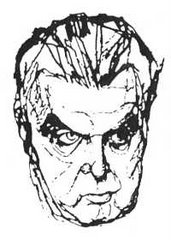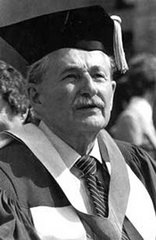Passports, Provincial Politics & Security
Recent efforts by Manitoba, Ontario and New Brunswick to alleviate the financial burden and inconvenience of cross-border travel are certainly welcome. Politicians should be applauded any time they save Canadians money and time, right? Well, almost....
Now entering its second week, the 'Misters Doer, McGuinty and Graham Go to Washington' tour is emphasizing the need for the United States to relax its land-border access requirements to allow Canadians to continue to enter the United States using only driver's licences. (Presumably, their scheme will allow Americans to continue to enter Canada on the same terms.)
The plan sounds solid on the face of it. No need for occasional tourists to wait in line and pay for a passport in order to visit the States on holiday or business. Just preserving the status quo, right? WRONG.
Let's leave aside the fact that the Premiers are entering international negotiations -- informal as they are -- without the federal government present. This is part of an on-going trend that's seeing Canadian heads-of-government become second-rate lobbyists, begging governors and congresspeople to heed their interests. Granted, it can be effective (witness Ralph Klein's leveraging of Alberta oil on the BSE issue). But more often than not, it reveals precisely how small provincial governments are the grand scheme of things. When they travel in packs, like when they attend various governors' association meetings, they have a chance. But sending only the premiers of Manitoba, Ontario and New Brunswick turns the whole thing into a sideshow. It may work in terms of election posturing back home -- oh, how they look statesmanlike in their photo-ops on Capitol Hill -- but it's not even backpage news in Washington, where it really counts.
(The Harper government hasn't been silent on this issue, either. They've managed to push back the implementation date several times, and recently got Washington to agree to allow Canadians under 17 to cross land borders sans passports. What three premiers think they can do better than the PM is beyond me.)
The more concerning issue is that the deal they're proposing would involve the development of new, "enhanced" drivers licences. While news reports are short on details, McGuinty claims that the new Ontario card will include more security features than the current Canadian passport.
When you read "security features", don't think it means making your identity more secure. Or even your country more secure. This is all about making America more secure. And this means handing over personal information.
Presumably, your 'vital' information will be attached to these cards (your name, birthdate, birthplace, social security number, address, phone number, etc.). Your driving record would be recorded here, allowing the police to swipe your card when they pull you over. Maniotba's plan is to include vehicle registration information on their new licences, meaning your licence plate number will be attached. It's not a stretch to imagine that your criminal record could be stored here, as well, in order to facilitate border security. Throw in biometrics -- like your photo, fingerprints, retinal imprint, height, weight, eye-color, blood type -- and the card becomes what the Americans want it to be. But it won't end there.
It's a matter of practicality that a number of other pieces of information be attached to these new licences. Premiers have been collaborating on the development of electronic health records. The easiest solution: attach it you your 'citizenship card' (i.e., your new licence). Other information (including your family status, next of kin, tax returns, organ donor status, voter registration data, gun registration, pet registration, etc.) could easily be compiled here, allowing Canadians to access a wealth of government services with a single card. (It would be cool to add your banking information here, too, wouldn't it?)
It's disquieting enough that various Canadian governments have all of this information at their disposal. As it stands now, this information is purposefully compartmentalized (so that the DMV doesn't have access to your health records, for instance). Talk of citizenship cards always brings up the spectre of breaking down these compartments, however. (Recall the uproar over HRDC's attempts to monitor air travel in the aftermath of 9/11.)
I'm the last one to be alarmist when it comes to government over-reach. But it doesn't take a libertarian to see the slippery slope here. At the very least, these new licences would merge together data collected by provincial and federal governments. Suddenly, the police now has access to your health records, and your accountant has your gun registration. Good luck talking your way out of a speeding ticket because of your 'uromycetisis'.
If it's alright with the premiers in Washington, I'd like to spend the extra money and time on a passport. Leave my driver's licence out of it.





1 comment:
Globe Editorial, Feb. 28
Not the driver's licence
It is easy to understand why so many U.S. governors are reluctant to endorse four provincial premiers' daft schemes to substitute driver's licences for passports at the border. Sure, those proposed licences would carry a biometric chip to identify the bearer through iris or facial recognition. And the impending U.S. requirement for passports or an equivalent document at the Canada-U.S. land and sea borders by June of 2009 could create huge hassles. But the complications of this risky scheme so outweigh any possible benefits that it is hard to imagine why three premiers -- from Ontario, New Brunswick and Manitoba -- went to Washington this week to lobby the governors. (Quebec Premier Jean Charest could not attend because of the provincial election.)
Security expert Wesley Wark of the University of Toronto's Munk Centre for International Studies put it well. "The premiers are desperate, encouraged in this fantasy by the business community and governors in the U.S. border states. It won't meet U.S. security needs. And it conjures up a foolhardy sinkhole of spending and potentially grave privacy abuses."
What can the premiers be thinking? Suppose the Americans fell for this scheme. Suddenly driver's-licence bureaus would have to do a lot more than check parallel parking skills. They would have to confirm that applicants were who they said they were. There would bebackground checks, demands for birth certificates and sponsorship requirements. Sounds a little like the existing passport office, doesn't it? The provinces would have to build bureaucracies. Huge bureaucracies. Meanwhile, what would happen at the border to folks who don't drive?
And what about security at these new driver's-licence offices? Ontario has had trouble protecting even existing data. In a devastating report on the Transportation Ministry in 2005, the provincial Auditor-General noted that there had been incidents of misuse of credit-card information as well as the creation of fraudulent driver's licences by altering existing licences. Over four years, the report said, the ministry had misplaced 49,000 high-risk stock items while another 7,000 items were reported stolen. That hardly inspires confidence.
There is already an alternative to the passport, the Nexus card, which is available to Canadian and U.S. residents and which expedites crossings at the land border for low-risk, pre-approved travellers. The Americans will continue to accept Nexus cards at the land borders when the passport requirement takes effect. It's hard to understand why the premiers are calling for another complicated level of bureaucracy, especially since licences differ from province to province.
As the premiers return home today, they should abandon this foolish idea. They should urge Ottawa and Washington to expand the Nexus program. It is, after all, a federal problem, and it's Ottawa's responsibility to solve it.
Post a Comment